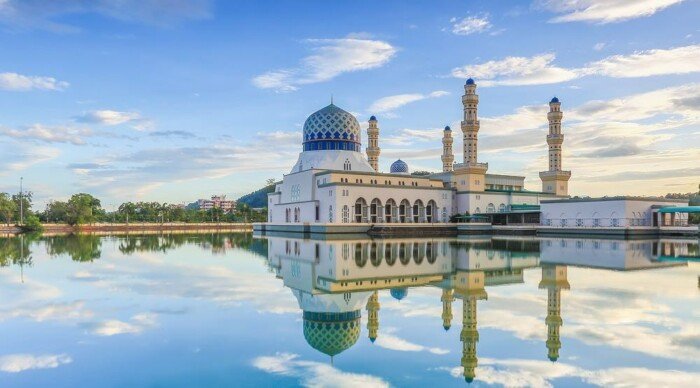Nestled on the northern part of the island of Borneo, Sabah is not only known for its stunning natural beauty but also for its vibrant economy, driven by various industries and commercial centres. In this article, we delve into the diverse economic landscape of Sabah, examining its main industries and key commercial hubs that contribute to the region’s prosperity and growth.

Agriculture and Palm Oil Production
Agriculture remains a vital sector in Sabah’s economy. Palm oil production is leading the way as one of the primary manufacturing companies. Vast plantations sprawl across the landscape, yielding significant quantities of palm oil. Which is a crucial commodity for both domestic consumption and export. The fertile soil and tropical climate of Sabah make it an ideal environment for cultivating palm oil, contributing substantially to the region’s agricultural output and economic development.
Tourism and Hospitality
Sabah’s unparalleled natural beauty and diverse attractions make it a popular destination for tourists worldwide. The state boasts pristine beaches, lush rainforests, and abundant marine life. Offering visitors a wide range of outdoor activities and cultural experiences. Kota Kinabalu, the capital city, serves as the gateway to Sabah’s tourism industry, with its vibrant nightlife, shopping districts, and luxury resorts catering to both domestic and international travellers. Other popular tourist destinations include the stunning islands of Sipadan, Mabul, and Layang-Layang, renowned for their world-class diving sites and eco-tourism initiatives.
Oil and Gas Exploration
Sabah’s offshore waters are rich in oil and natural gas reserves, making the oil and gas industry a significant contributor to the state’s economy. Offshore drilling activities, exploration projects, and production facilities dot the coastline, attracting investment from major energy companies seeking to capitalize on Sabah’s abundant resources. The development of oil and gas infrastructure has led to job creation, technological advancements, and economic diversification, driving growth in related sectors such as engineering, logistics, and manufacturing.
Manufacturing and Industrial Zones
Sabah boasts several industrial zones and manufacturing hubs that play a crucial role in the state’s economic development. Kota Kinabalu Industrial Park (KKIP) offers modern facilities and strategic location advantages for businesses in various sectors. This includes electronics, textiles, and food processing. These industrial zones serve as centres of innovation, production, and trade, attracting both local entrepreneurs and multinational corporations looking to establish a presence in Sabah’s growing market.
Commercial Centers and Trade Hubs
In addition to its industrial zones, Sabah is home to bustling commercial centres and trade hubs that drive commerce and economic activity across the region. Kota Kinabalu’s Central Business District (CBD) is the primary commercial hub, housing corporate offices, retail outlets, and financial institutions catering to the needs of businesses and consumers alike. Other commercial centres such as Sandakan and Tawau serve as important trading posts, connecting Sabah to neighbouring countries and international markets through ports, airports, and logistical networks.
FAQ
1. What are the main industries driving Sabah’s economy?
Sabah’s economy is diverse, with several key industries contributing to its growth and development. These include agriculture, particularly palm oil production, tourism and hospitality, oil and gas exploration, manufacturing, and trade.
2. How important is palm oil production to Sabah’s economy?
Palm oil production is a crucial component of Sabah’s economy, generating significant revenue through both domestic consumption and exports. The state’s favourable climate and fertile soil make it well-suited for cultivating oil palm. Contributing to Sabah’s position as one of the leading palm oil-producing regions in the world.
3. What role does tourism play in Sabah’s economy?
Tourism is a major economic driver in Sabah. It attracts visitors from around the globe to explore its natural wonders and cultural attractions. The tourism industry supports various sectors, including hospitality, transportation, and retail, and contributes significantly to job creation and revenue generation.
4. How is Sabah’s oil and gas industry contributing to its economy?
Sabah’s offshore waters are rich in oil and natural gas reserves. Offshore drilling activities, exploration projects, and production facilities create employment opportunities and drive economic growth in related sectors such as engineering, logistics, and manufacturing.
5. What are some of the main commercial centres in Sabah?
Kota Kinabalu serves as the primary commercial hub in Sabah. Its Central Business District (CBD) houses corporate offices, retail outlets, and financial institutions. Other important commercial centres include Sandakan and Tawau. These serve as trading posts connecting Sabah to neighbouring countries and international markets.
Conclusion
Sabah’s economic prosperity is fueled by a diverse array of industries and commercial centres. These contribute to its growth and development. From agriculture and tourism to oil and gas exploration and manufacturing. Each sector plays a vital role in shaping the region’s economy and providing opportunities for employment, investment, and innovation. As Sabah continues to evolve as a dynamic economic powerhouse. Its main industries and commercial centres will remain integral to sustaining its prosperity.
You will find the following information useful:




